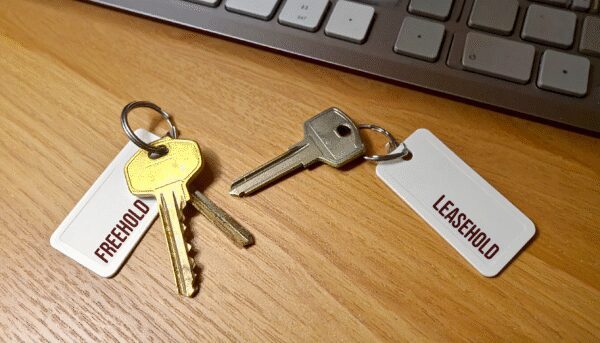Latest Posts

Assignment of Off-Plan Contracts
We regularly deal with off-plan contracts at Quastels. These are contracts to buy a property, usually an apartment, that is still being constructed. A significant difference between off-plan contracts and those for buying ‘second hand’ property is the flexibility to ‘assign’ the contract before completion.
An ‘assignment’ of a contract is the transfer of the benefit of the contract to a third party, who then completes the purchase. An assignment may be to a relative, or to your own company (often referred to as ‘family assignments’); or to an unconnected party, where you are effectively selling the contract on.
The Standard Conditions of Sale for second hand properties would not usually allow the purchaser to assign the contract before completion. Off-plan contracts, however, would usually allow this.
Upon exchange of contracts for an off-plan contract, the completion date will be on written notice from the seller (when the property is finished). This contract will contain an anticipated/target completion date for when the developer aims to complete the property (this will usually refer to quarter of their target completion year, for example Q1 being between January and March). When the property is finished, the buyer will be required to pay the remainder of the purchase funds to complete.
After exchange of contracts, and before the developer completes the building, assignment will provide an exit for the original purchaser with an assignee taking over the deal with the developer. The original purchaser would usually have paid a 10% deposit, they may also have paid a stage payment subsequently, sometimes an additional 5% or 10%. If the original purchaser is selling on the contract, they will require their buyer (the ‘assignee’) to reimburse the deposits paid, adjusted to take into account any profit or loss in the selling price to the assignee. The amount being paid for the assignment is known as the ‘assignment fee’. The assignment is effected by a Deed which transfers the benefit of the contract and the obligation to pay the remaining funds due to the developer.
Certain conditions are usually imposed by the developer to assign an off-plan contract:
- obtaining developer’s written consent to assignment;
- providing satisfactory ID and AML documentation for the potential assignee;
- a time period within which the buyer cannot assign (usually not before 12 months from exchange of contracts and one month before estimated completion);
- paying the developer’s lawyer’s administration fee (usually in the region of £500 plus VAT);
- restrictions against using the developer’s marketing material;
- only one assignment being permitted.
Overseas investors are specifically interested in the ability to assign contracts due to the potential to make financial gain in a rising market, or to address taxation changes. The provision also allows sensible flexibility for the purchaser, for example if their circumstances change, or they wish to add a relative to the contract.
It it important to be aware that not all mortgage lenders will agree to fund purchases that involve an assigned contract. An ‘assignee’ should always check with their mortgage broker first, as should a buyer thinking of assigning their contract to a relative.
If you would like to discuss issues involving this topic further, please contact Nargiz Abdullayeva.
Read More
Why is there Leasehold Property Ownership? What Buyers Need to Know
When purchasing property in England and Wales, there is a clear distinction between properties being held on a leasehold basis as opposed to being held as freehold property. Leasehold property ownership derives from an historical feudal system, that has been phased out in many parts of the world, but remains a common way of owning property in England and Wales. Nearly every apartment in England and Wales is held on a leasehold basis. It is no wonder then that leasehold ownership has has a spotlight shone on it in the recent years, and is part of the UK government’s legal reforms to change some of the legislations surrounding property ownership.
Leasehold vs Freehold Property
Firstly, we set out the key features for freehold property:
- The property includes the land that it sits on, and is owned for an infinite time.
- No ground rent is payable, although for some freehold houses there may be an estate charge payable as a contribution towards estate management costs.
- The owner is responsible for the maintenance of the building, this includes the structures, roof and the foundations. It is entirely their property.
- Flexibility for alterations to be made to the building, subject to local planning laws and building regulations.
The key features for leasehold property include:
- Leasehold interest means that you hold the property for a fixed term, commonly the lease terms granted would be for 99, 125, 250 or 999 years from the lease commencement date.
- Ownership will be held under a lease whereby the freehold owner (the owner of the building) will be known as the Landlord or Lessor, and the leasehold (the property owner) will be known as the Tenant or Lessee.
- Annual ground is payable to the Landlord under leases granted prior to the Leasehold Reform (Ground Rent) Act 2022 coming into effect. Levels of ground rent can differ from property to property.
- Service charges are payable to the Landlord or an appointed management agent as a contribution towards the maintenance and repairs of the building and estate, and building insurance.
- Restrictions within the lease govern the leasehold owner’s rights and use of the property, including the terms on which the property can be let out, how the ownership can be transferred or sold, how common parts are managed and insured by the freehold owner, what alterations may be restricted.
Practical considerations for Buyers purchasing leasehold property
The remaining term of the lease is one of the most important considerations when purchasing leasehold property. The number of years remaining will affect the marketability and value of the property, some lenders will not consider the property as good security should the remaining term be below a certain number of years. The extension of lease terms is a niche area of property law and such rights and processes have typically been costly for a leasehold owner.
The ground rent and service charge structure and provisions should be reviewed as these need to be considered carefully as it can also affect the type of lenders that are willing to lend on the property, as well as having an effect on the marketability and affordability of the property.
Restrictions and regulations set out in the lease must be adhered to, any breach of a lease covenant (including non-payment of ground rent and service charges) could lead to a right of re-entry and forfeiture of the lease by the Landlord taking enforcement action in the courts. Complying with, or defending such action may be costly.
Key legal reforms
The Leasehold Reform (Ground Rent) Act 2022 effectively abolished ground rents on newly granted long residential leases granted after 14 February 2022.
Future reforms expected, particularly under the Leasehold and Freehold Reform Act 2024 will include:
- Easier and cheaper ways to extend lease terms.
- More control and rights for leaseholders in making decisions on how their buildings and common shared parts are managed.
- Potentially replacing the feudal system of leasehold ownership altogether, and replacing it with commonhold as introduced by the Commonhold and Leasehold Reform Act 2022.
Conclusion
Whilst there are more restrictions affecting the use, and potentially more charges payable under leasehold ownership in comparison to owning a freehold property, leasehold property is still an attractive ownership option for many property owners, particularly for overseas based owners who may want to own a ‘lock-up and leave’ holiday property, or a landlord to take care of maintenance and management for the building. The leasehold framework ensures that the Landlord is responsible for the maintenance, security and insurance maintained and implemented for the building, as it is in accordance with the Landlord’s legal obligations within its lease and required under current UK building safety regulations and guidance, which has also seen recent changes.
Our specialist residential property team are experienced in advising on leasehold property as well as freehold property, our aim is to ensure that you are fully aware of your legal obligations whilst owning a property in England and Wales. We would also be able to advise on the status of some of the key legal reforms mentioned in this article and how this may affect you buying property, whether it is for the first time in England and Wales, or as an existing property investor.
To get in touch with our Residential Real Estate team or APAC Desk, please fill out the form below.
Read More
Bank of Mum and Dad: Considerations when helping your children with a property purchase
An increasing amount of young people are relying on the ‘bank of mum and dad’ to purchase their first home. According to a recent Savills report, 52% of first time buyers received help from their parents in 2024. This trend is expected to continue and parents should consider a number of factors in supporting their children in this way.
The support may be by way of:
- A financial gift
- A loan
- An assignment of contract to buy a property off-plan
Financial Gift
Most importantly parents must decide whether to make a gift or a loan. A gift is the transfer of money without any expectation of repayment nor any interest in or control over the property.
If the child is intending to use a mortgage, a gift may be the only option since many mortgage lenders will not proceed with loaned funds. It is sensible to speak to a mortgage broker on this point at an early stage. Where a mortgage is involved parents will need to sign a declaration of gift in the mortgage lender’s required format.
Parents should consider ways in which they may protect their gift for the family, for example, should the child later be in divorce proceedings, or errantly sell the property. If a parent is a co-owner this will increase the Stamp Duty Land Tax payable for second property ownership. Parents may wish to consider requiring the child to enter a restriction on the title requiring their consent to sell, which imposes an administrative hurdle (although no concrete protection); or mooting prenuptial agreements.
There are tax implications. If a parent were to die within 7 years of the gift then it may be subject to inheritance tax. Gifts of up to £3,000 are exempt from inheritance tax and the allowance can be carried forward for one year, making a potential £6000 available.
Loan
A loan structure can be used to give the parents more control, and this can be supported by a legal charge (a mortgage) over the property in favour of the parents, subject to the agreement of any principal mortgage lender. The parties are free agree the detail of the loan terms, whether any interest is payable and whether it may be waived in the future.
A formal loan agreement should be put into place but this need not be complex. If parents decide to charge interest on the loan, the income will be subject to tax. If the gifting parent were to die, the amount of the loan would remain within their estate for inheritance tax purposes.
Assignment of Contracts
Parents may purchase an off-plan property and closer to completion of the construction choose to assign/transfer the benefit of their contract (and the paid deposit) to their child. They may ultimately gift the balance or the child may obtain a mortgage for the amount payable at completion. In the latter case, parents and children should be aware that some mortgage lenders are reluctant to lend in cases of ‘assigned contracts’. If the property has gone up in value since the date of contract potentially capital gains tax could be payable and specialist advice should be sought. Similarly, the tax implications of gifting the deposit would apply, as set out earlier. If there have been changes in Stamp Duty Land Tax between the date of the contract and the date of the transfer then those changes may apply to the contract. Legal advice should be sought on this point on a case by case basis.
Conclusion
Whichever way parents choose to support a home purchase it is evidently important to seek comprehensive and joined up advice. Quastels offers specialist real estate and tax advice with access to a network of trusted advisers. Contact: enquiries@quastels.com
Read More